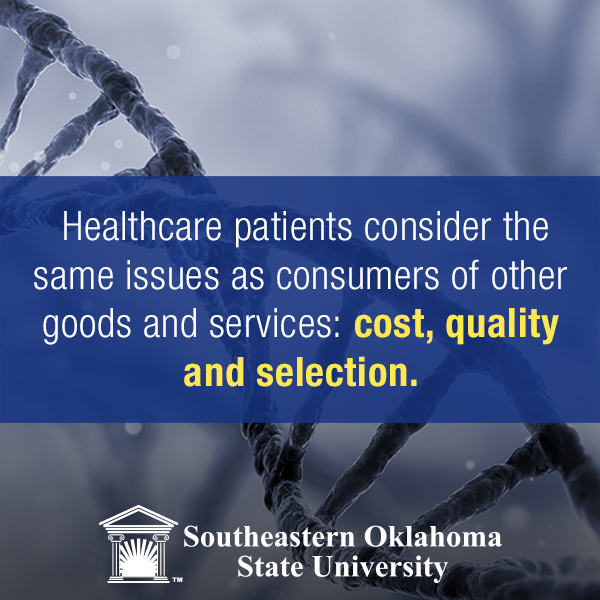In order for healthcare providers to make the best decisions for their patients, they must have access to the best and most thorough data. As the volume of information in healthcare systems grows, so does the need for data transparency in healthcare. Transparency in healthcare data affects patients, physicians, insurance companies, hospitals and healthcare staff. An increase in transparency from big data in healthcare leads to improvements in trust, quality of service and cost effectiveness.
Transparency for Patients, Payers and Providers
Patients go to physicians’ offices, clinics and hospitals to receive medical attention; however, even as patients they are consumers, and they consider the same issues as consumers of other goods and services: cost, quality and selection. Data transparency is crucial to earning patients’ trust. In order for patients to achieve peace of mind about their healthcare, providers and insurance companies must maintain transparency about the true out-of-pocket costs patients will face as well as the necessity of tests, drugs and other treatments physicians may order.
In the same light, healthcare providers such as physicians and hospitals need transparency from services like insurance companies. Physicians need improvements in data transparency in healthcare systems to provide feedback on their referral partners. Insurance companies and healthcare providers must work together to share information in ways that lower costs and provide better patient outcomes, rather than concealing information to improve their own bottom lines.
What Prevents Transparency?
Historically several barriers have stood in the way of complete data transparency in healthcare. Laws, regulations and internal policies have prevented insurance companies and physicians from maintaining full transparency with each another and their patients. Healthcare providers and insurance companies have also maintained contractual limits on information sharing, often claiming that such information is proprietary.
Technological barriers have also prevented companies and providers from compiling data and analyzing it for statistical correctness. Each of these barriers stands in the way of progress as big data in healthcare continues to grow. All parties involved must work together to overcome these challenges for the good of patients.
Measures to Improve Transparency
An important step toward data transparency in healthcare is collaboration. Providers and insurance companies can work together to decide how they will jointly measure treatment success and patient satisfaction, and they can ensure that each party supplies the healthcare data necessary for accurate measurements. When each party involved in big data in healthcare becomes accountable to others for their quality of service, transparency increases — as does trust between patients, physicians and insurance companies.
Benefits of Transparency
Increased transparency in healthcare data brings more choices to patients, and it improves trust between patients, healthcare providers and insurance companies. Greater choice means physicians, hospitals and insurance companies must be more competitive, which can increase quality and innovation.
Healthcare providers and insurance companies, in turn, benefit from new ways to increase productivity and reduce costs — rather than simply hiding them. Overall, patients are the biggest winners in the efforts to increase data transparency in healthcare, as patients’ health is the foundation of the entire industry.
Learn about the Southeastern Oklahoma State University online MBA with an emphasis in healthcare information systems program.
Sources:
HealthCatalyst: How One Hospital Embraced Patient Satisfaction Transparency
Health International: Transparency — The Most Powerful Driver of Healthcare Improvement?
Brookings: Opening the ‘Black Box’ of Health Care Data
